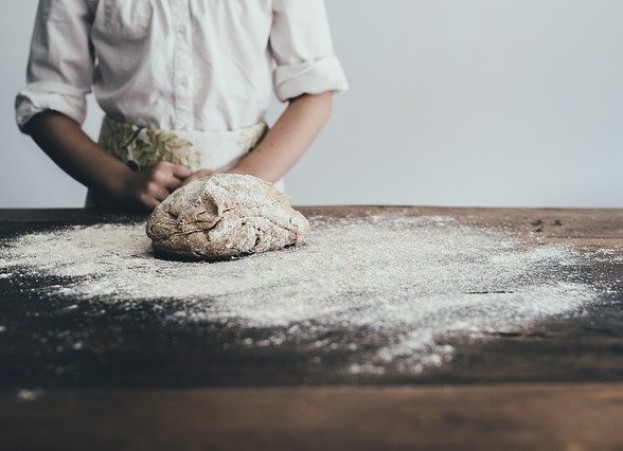Top Stories

Baking Tips and Hacks That Are Worth Trying
-

What Makes Kimchi Healthy? Here Are Its Benefits
Kimchi is popular around the world. Here are some facts as to why kimchi is good for your health. (Photo: Pixabay) Since the world is currently taken by storm by the Korean spell, thanks to its tear-jerking tv dramas and Kpop idols, it wouldn't be utterly Korean in style and fad if it wasn't for their food. -

Iconic Street Foods From All Over the World for Under $5
Craving for street foods from across the world? Here are some of the best you can get under $5! (Photo: Pixabay) Each country is unique in terms of culture, tradition, and of course, cuisine. -

The Best Grilling Techniques and Tips
Don't know how to grill? Here are some grilling tips and techniques that you can use in your next cooking session. -

5 Iced Coffee Hacks You Can Do At Home
if you love iced coffee, here are seven hacks that you should definitely try at home. (Photo: Pixabay) Coffee is an excellent way to kickstart your day. -

7 Foods That People Assume Are "Healthy"
Do you think you're eating healthy enough? Check these food misconceptions and see if you are really eating healthy with what you eat. -

Grilling Corn for the 4th of July? Here's How in 3 Ways
Corn is a great staple food that you can enjoy any day. Here is how to cook the perfect grilled corn. -

Brigadeiro: The South American Dessert That You've Probably Never Heard Of | RECIPE
Brigadeiro desserts are very trending these days. Here is a brief history of the popular dessert and how to make it. -

What Makes Wagyu Beef Expensive: Facts and Origin
Wagyu beef is one of the most expensive meats in the world. But why is this? (Photo : Pixabay) Every meat lover would know and identify a Wagyu beef when they see one. -

Important Aspects of a Gluten-Free Diet
Are you thinking about going gluten-free? Here are some things you need to know about a gluten-free diet! -

A Beginner's Guide to the Keto Diet
Keto diet is one of the most popular diets followed by many people around the world. Here are some things you need to know about the ketogenic diet. -

6 Amazing Benefits of Chia Seeds That You May Not Know
Chia seeds are one of the healthiest foods in the world and can give you more health benefits than you think. The Best Meal Kit Delivery Service For Every Budget
There's one way to cook fresh, delicious meals at home without doing all the planning, preparing and shopping: meal-kit delivery services. These services deliver a box of ingredients to your door, and you do the cooking at home. Most kits offer the option to serve two, three or four people, and you can customize how many meals per week you would like. The Simple Secret Is Better Meat: Your Best BBQ Ever
From a slow-smoked Southern barbecue to Argentinean gaucho-inspired open fire asado cooking, and everything in between, America is having a love affair with outdoor cooking. Pellet grills, gas grills, hybrid fuel grills, kamado cookers, every kind of device for cooking outside keeps getting better, and for years here at Forbes and for many magazines I have reviewed the best grills and gear in a wide range of price points. Las Vegas Food Tours Will Make Your Trip Unforgettable
I am a big fan of locally guided food tours, and try to take them wherever I go. There's no better way to explore the cuisine of a place than with a knowledgeable local guide, and instead of being forced to choose one spot for a meal, you usually get a broad sampling while learning the story behind them.
MOST Read
UK Supermarkets Warn Rachel Reeves: Tax Hike Would Bring 'Inevitable' Blow to Food Prices
Will Starbucks Restock the Bearista Cup? Outrage as Viral Item Resells for Up to $1,000
Aldi Faces String of Food Recalls in Quick Succession — Are Quality Checks Slipping?
Coca-Cola Announces Henrique Braun as CEO, Eyes Growth in Health-Conscious Beverage Market
'Salmonella Sussex': Meghan Markle's Rings Spark Backlash Over Raw Turkey Hygiene Fears
News









